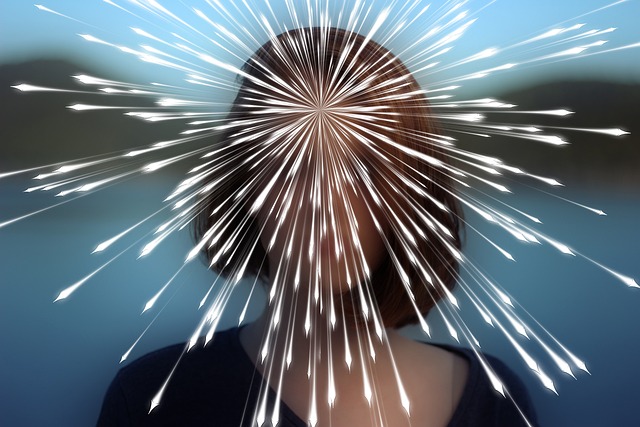Drug-Induced Psychosis: How Street and Gas Station Drugs Can Trigger Schizophrenia-Like Symptoms
When most people think about street drugs, they picture physical harm—addiction, overdose, or organ damage, but one of the most overlooked dangers is drug-induced psychosis or even schizophrenia-like conditions. Understanding how drugs can induce severe psychological symptoms can make a difference in treatment and recovery for those affected.
How Street Drugs Cause Drug-Induced Psychosis
Street drugs—such as methamphetamine, cocaine, synthetic marijuana (K2/Spice), LSD, PCP, high-dose cannabis, and gas-station drugs like Zaza (tianeptine)—can disrupt brain chemistry in ways that mimic or unmask psychiatric disorders.
- Methamphetamine psychosis: Meth floods the brain with dopamine, leading to paranoia, hallucinations, violent behavior, and long-lasting psychotic episodes. Some people develop persistent schizophrenia-like symptoms even after quitting.
- Synthetic marijuana psychosis (K2/Spice): These man-made cannabinoids are far stronger than natural cannabis. They can cause sudden paranoia, agitation, seizures, and severe psychotic breaks that often require hospitalization.
- Gas-station drugs like Zaza: Unregulated products such as Zaza (tianeptine) is sold as a supplement or energy pill but act on brain chemistry like opioids or sedatives. They can cause confusion, hallucinations, extreme mood swings, and withdrawal-induced psychosis.
- Cocaine and hallucinogens: Cocaine overstimulates dopamine while hallucinogens like PCP and LSD disrupt serotonin and glutamate, leading to delusions and loss of reality.
- Triggering underlying illness: In genetically vulnerable people, drug use may act as the “on switch” for schizophrenia or bipolar disorder, bringing symptoms forward years earlier than expected.
Drug-Induced Psychosis Is Not Limited by Age
Drug-induced psychosis is not confined to one age group—it can happen to teens, young adults, and older individuals.
- Teens and young adults: The developing brain is especially vulnerable. Early drug use not only raises the risk of short-term psychosis but also long-term conditions like schizophrenia.
- Older adults: Stimulants, synthetic drugs, or gas-station pills may be more dangerous due to interactions with other medications or reduced brain resilience.
In short, anyone can be affected, but adolescents and young adults face the highest long-term risks.
Symptoms of Drug-Induced Psychosis
When a patient presents with psychosis, doctors must determine whether it’s caused by drugs, a primary mental illness, or both.
- Diagnosis: If symptoms appear only during use or withdrawal, it’s classified as substance-induced psychosis. If they persist for months, schizophrenia or bipolar disorder may be suspected.
- Medications: Antipsychotics may stabilize symptoms, but treatment must also focus on detox and abstinence to prevent recurrence.
- Integrated care: The best outcomes come when addiction treatment and mental health care are combined, addressing both sides of the condition.
Recognizing the warning signs early is critical. Symptoms include:
- Hallucinations (seeing, hearing, or feeling things that aren’t real)
- Delusions (false beliefs, such as being watched or controlled)
- Extreme paranoia or distrust of others
- Disorganized thinking or rambling speech
- Agitation or aggression without reason
- Loss of touch with reality (confusion about time, place, or identity)
- Rapid mood swings (from euphoria to rage or deep depression)
- Withdrawal from friends and family
- Neglect of hygiene, eating, or sleeping
Can the Brain Recover After Drug-Induced Psychosis?
Yes—many people do recover, especially with early intervention.
- Abstinence gives the brain a chance to heal. For some, psychotic symptoms fade within weeks of stopping use.
- Therapy and peer support help rebuild healthy coping skills.
- Dual diagnosis programs—treating both substance use and mental health—deliver the best long-term outcomes.
- Lifestyle support (sleep, diet, exercise, stress reduction) helps prevent relapse and stabilize mood.
The Hidden Dangers of Gas-Station Drugs
Drugs like Zaza (tianeptine) and kratom are marketed as supplements or “energy boosters.” In reality, they can cause the same devastating psychiatric effects as street drugs:
- Sudden confusion, agitation, and paranoia
- Hallucinations and delusional thinking
- Severe withdrawal symptoms when trying to stop
Because they’re sold legally in many places, people often underestimate the risk. But these “convenience store highs” can lead directly to drug-induced psychosis and medical emergencies.
The First Step: Untangling Addiction From Mental Illness
One of the hardest parts of treatment is figuring out whether symptoms come from drug use, a primary psychiatric illness, or both. For patients and families, the first step is a comprehensive evaluation that looks at both mental health and substance use together.
- Seek a dual-diagnosis provider. Specialists trained in both addiction and psychiatry can assess whether psychosis is substance-induced or rooted in another mental illness.
- Be honest about substance use. Even legal or “gas-station” drugs like Zaza or kratom matter for diagnosis. Full disclosure helps doctors tailor the right treatment.
- Stabilization comes first. Often, the immediate goal is to reduce psychotic symptoms with medication and ensure safety. Once stabilized, doctors can sort out whether symptoms persist without drugs.
- Plan for integrated care. Addiction treatment alone may not resolve psychosis, and psychiatric treatment alone may not address cravings. A combined approach offers the best chance for lasting recovery.
Taking this step helps patients and families begin treatment with clarity—and prevents months or years of misdiagnosis.
Hope Beyond Drug-Induced Psychosis
Experiencing hallucinations, paranoia, or schizophrenia-like symptoms after drug use can be terrifying. But recovery is possible. With proper medical treatment, counseling, and long-term support, many people regain stability and live fulfilling lives.
The first step is recognizing the danger, untangling addiction from mental illness, and reaching out for help.
The Value of Residential Recovery Treatment
For many patients, the safest and most effective place to begin untangling mental health complications from addiction is in a residential recovery treatment facility. Programs such as Breakthrough Recovery Outreach provide a structured, supportive environment where healing can truly begin.
In residential treatment, patients benefit from:
- Safe stabilization. Medical staff and counselors ensure patients are supported as they detox and begin recovery, reducing the risk of relapse or harm.
- 12-step meetings and peer support. Being surrounded by others who are also working toward sobriety builds accountability, hope, and community.
- Counseling and therapy. Individual and group sessions help patients understand their triggers, address past trauma, and develop healthier coping skills.
- Practical strategies and tools. Patients learn relapse-prevention techniques, stress-management strategies, and life skills that lead to long-term sobriety.
- Healing environment. Residential recovery creates a space where patients can step away from destructive influences and focus fully on their mental health and sobriety.
If you or a loved one is struggling with addiction and symptoms impacting mental health, contact us today!




